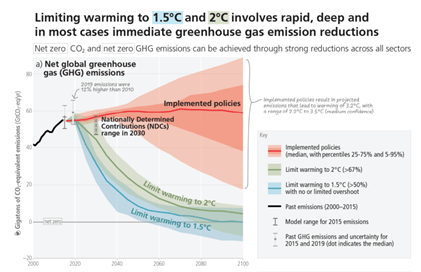
by Carol Bracken
RESILIENCE
In recent times there has been a lot of talk in government about resilience. As a nation we are reeling from large-scale weather-related events such as the Victorian bushfires, and multiple Queensland floods. I’m not an academic or a climate scientist but I can see that things are changing, and uncertainty is increasing.
Australians are being forced to react dramatically to a range of disruptive events – and we’re unprepared. It’s difficult for emergency services and the military to respond to the surge in scale and frequency of calls for help both in our communities and overseas. Help is too late and not there when it’s needed.
Are you prepared?
AN INCREASE IN STORMS, FIRES AND FLOODS
We’ve been warned about climate change since the 1970s. Scientists are generating more and more evidence that as the planet warms there will be an increase in the frequency and size of storms, floods, cyclones, and fires.

I discovered climate change later than some, but I realized I needed to do something. I voted, I joined community groups, I signed petitions and bought electric vehicles. I used to believe that science and global governments would lead us out of this dilemma. I thought it was some far-off generation that would have to deal with the impacts.
Now I know the world is not going to avoid drastic change while I’m alive.

There will be years of increased extreme weather before we can turn it around. The Intergovernmental Panel on Climate Change (IPCC), which pools information from the world’s climate scientists, says that even with all the renewable energy solutions we are currently planning to build, we are still going to warm the planet by more than 1.5°C.
My earlier optimism has been crushed. 2024 will be the first year global warming exceeds 1.5°C.
We have failed in our global commitment to prevent massive changes to our climate, and we are in for a wild ride. Even with us working to make a difference, over the next seventy years we are going to experience significant warming. This will be more change than most people alive today in Australia have ever experienced.
There will be an increase in the hazards experienced by people including heat-related deaths, increased diseases that thrive in hotter weather, mental health challenges, increased flooding, especially in coastal areas, and a decrease in food production in some regions.
POPULATION AND MIGRATION CHANGES
There are other changes we are and will be experiencing over the next seventy years that will make our lives unpredictable and uncertain.
We can expect mass population migration from unlivable areas due to heat, famine, and lack of water. This might cause nations and people to fight over resources and land in which to live.

Indirectly there are financial and global market disruptions being experienced as we transition from fossil fuels to renewable energy. There are continued changes to what work is available and the skills needed due to technology advancements, automation, and mechanization.
Businesses are uncertain too and are trying to increase productivity to compete in a global marketplace. They have increased their casual workforce, and encouraged a gig economy, to help respond quickly to changes. This has a significant flow on effect in the labour force as more and more jobs are not permanent and don’t provide financial or mental security.
CAN YOU HANDLE IT?
We can be prepared. People will save, they will build stronger houses. We’ll put up flood barriers and take out insurance policies to protect us against flood, fire, drought, and loss of income.
I challenge you to think about all Australians. Do they see this coming? Can they all prepare? Most people aren’t looking ten years ahead – they’re looking forward to their next paycheck.
We’ve known about pandemics and climate change for a long time and yet they’ve still taken us by surprise. Most people are unprepared. Those Australian’s who are on lower incomes, in housing that is not adapted for increased floods, fires, and storms, are more likely to be impacted. Income inequality is rising, and with it the number of people that cannot insure effectively for changing circumstances.
What we need is resilience built into our social system.
We need a way to help individuals and communities immediately when there are sudden changes and disruptions in their lives. We need a budget and taxation system that is ready to handle pandemics, global crises, supply restrictions, and massive population migration as they occur.
The current economic system is set up for stability and predictable change. It can’t handle large numbers of people needing assistance at short notice. We have a welfare system that assumes people can find a job, regardless of the global and technological changes to work. We have a superannuation and pension system that assumes a stable split between our populations’ age groups, and we have a banking and housing system that assumes a stable global economy and a growing population.
We can’t guarantee that over the next seventy years.
We need a system with adaptation built in. A system that provides financial support always as soon as anything changes. This would help all Australians. It would help artists and those with very low or intermittent work, farmers affected by climate change needing to transition to something new, residents affected by bushfires, floods or storms, job seekers who are unexpectedly out of work, people not participating in the workforce because they are caring for others, people moving locations to find work elsewhere and early retirees that want to work some of the time.

The solution is a Universal Basic Income (UBI). Universal, meaning that it is paid to everyone, and basic income, meaning you get paid a livable income but not too generous – think the current indexed value of the pension.
LAZINESS’ ISN’T A SYMPTOM OF THE POOR
The usual fears are immediately expressed by everyone I talk to. Surely this will cost too much. This will encourage a low work ethic. It’s common for people to fear laziness in poor people, though, it’s ok for rich people to be lazy. In fact, it’s nearly expected.
Let me address your fears.
Firstly, laziness. Thirty-nine trials of UBI globally have demonstrated that UBI doesn’t increase laziness. A lot of the trials show that a steady and reliable income decreases the barriers to work, it empowers people to seek education and invest in their homes and children. It decreases mental health problems and encourages people to think about the future rather than living day to day. People on a reliable income present themselves more confidently and that leads to them to being able to find work.
Laziness and low work ethic are not dependent on poverty but a condition of human motivation. There will be a level of laziness – or should we say, a desire for leisure time – prevalent in communities regardless of income. I suggest work ethic is not a function of income but is established through social and family expectations.
WE CAN PAY FOR IT

Secondly, let’s consider the cost of a UBI. If you tax people who earn more than the UBI sufficiently, you can recover the UBI paid to them. In addition, the government can save enormously on the administration of the welfare system, the costs of emergency responses to weather events, and the costs of mental health, and health due to financial stress and poverty.
In a national level UBI, pension like payments would be made to every Australian on a fortnightly or monthly basis whether they are working or not. If they are suddenly not working for whatever reason they can still live, while they adjust their lives to new conditions. Money would be recovered from people earning well, through taxes – perhaps a combination of GST, asset, and income tax. Tax reforms will be needed and careful planning of how this could be implemented needs to be undertaken.
Howard Reed, an economist in the UK, highlights that establishing a system that enables a payment to every person would become a unique lever that the government could use to adjust the economy in a much fairer and distributive way than currently exists through manipulating interest rates. To progress a UBI further a more detailed economic modelling of staged approaches to introducing a UBI system are needed in the Australian context.
The idea needs community support and awareness. According to The Green Institute’s YouGov survey in 2020, 58% of Australians already support a UBI. We need to talk about how a UBI will increase resilience and preparedness for all Australians.

Let’s get prepared for the uncertain future we’re about to experience. It’s unprecedented, it’s scary but we can do something to reduce that fear. All Australians deserve to feel that they can adapt to anything, that they are proud of our country and that we are resilient.


Very interesting reading and thought provocation Carol. 😊
Thanks for putting the time into this, Carol. Without reading the science, it’s hard for people to imagine the challenges we and future generations are going to face because the world as a whole refused to rein in their fossil fuel consumption. I am particularly worried about what will happen to climate refugees, especially considering many people seem so hostile to refugees coming out “our land” already!!
I also greatly in favour of the UBI, to give everyone a chance to be educated and create a life for themselves- taking it off those who have waaaay more than they need, through taxes.
Interesting times….
Good piece. Thank you. Between rational ideas like this and implementation stands corporate State-control, which includes corporate media and social media. Without representative democracy, politicians simply aren’t interested in positive change that demonstrably levels the playing fields, ensures inequities are addressed, and systems resilience is increased. At this point I simply don’t know how to shift the political dial / Overton Window back to the Centre, as it shifts rapidly to the autocratic and corrupt extremes.